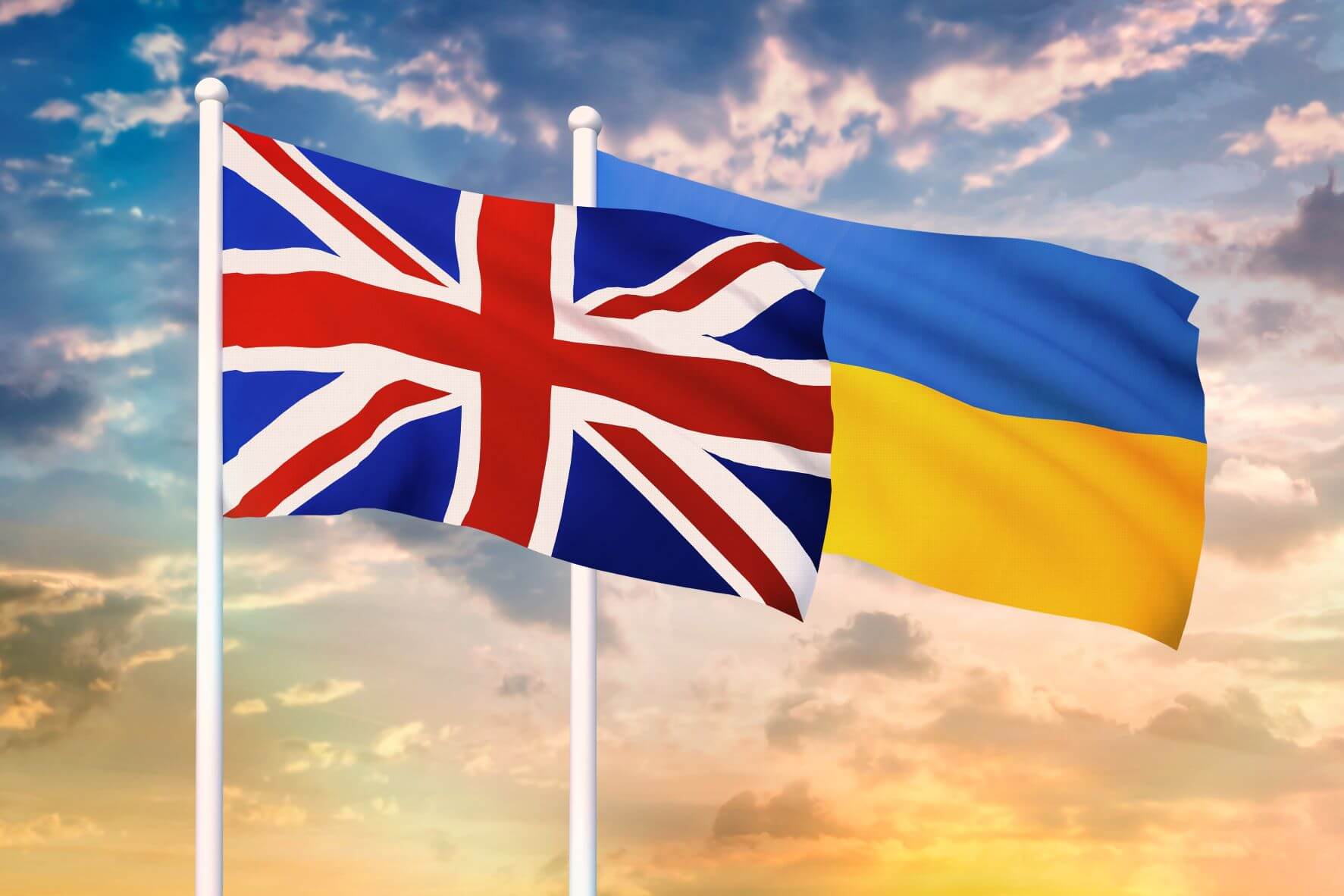Before you travel to the UK
You need permission to enter the UK. Check which visa you can apply for.
Once your application has been processed, you’ll either get a visa or official letter of permission. You can use this to board a plane or other form of transport to the UK.
If you applied to be sponsored by the Scottish or Welsh government
If you apply for a visa under the Ukraine Sponsorship Scheme (also known as ‘Homes for Ukraine’), you can choose the Scottish or Welsh government as your sponsor.
If your application is successful, they’ll contact you to let you know where you’ll be staying. They’ll also help with things like getting a bank account, accessing benefits, finding work and registering with a doctor.
There’s more information about the help you can get if the Scottish government is your sponsor or if the Welsh government is your sponsor.
What happens at the UK border
When you arrive in the UK, show your visa or your permission letter and passport to a Border Force officer.
If you’re bringing money or belongings
You can bring most personal belongings into the UK without having to speak with a customs officer. Use the green channel marked ‘nothing to declare’.
You must speak with a customs officer if you’re bringing:
- a personal vehicle
- prohibited or restricted goods, for example controlled drugs or weapons
- £10,000 or more in cash (or €10,000 or more if you’re coming to Northern Ireland), or the equivalent in another currency
If you’re bringing a pet
If you want to bring your pet with you, it might need to go into quarantine when you arrive. Find out what you need to do if you bring a pet.
Travelling to where you’re staying
In England, Scotland and Wales, you can get free onward travel by train, bus, coach or light rail from the major airport or port you arrive at. To be eligible, you must travel within 48 hours of arriving in the UK.
You can get free train or bus travel in Northern Ireland within 7 days of arriving.
Getting financial help
You can apply for benefits to get financial support. To be eligible for benefits you might have to pass a ‘residence test’ if you have recently arrived in the UK. These tests mean you usually need to wait for an amount of time before you are eligible for benefits.
You will automatically pass the residence test if all of the following apply:
- you were living in Ukraine immediately before 1 January 2022
- you left Ukraine because of the Russian invasion
- it does not say ‘no public funds’ or ‘no recourse to public funds’ on your immigration documents
If you do not have a job, cannot work or are on a low income
You can apply for Universal Credit if you do not have a job, cannot work or you’re on a low income. This benefit is paid each month. The amount you get depends on things like if you have a child or need help with housing costs.
You can open a UK bank account to get your benefits payments. If you’re not able to open a UK bank account you can still get benefit payments by using the Payment Exception Service
If you have children
You can apply for Child Benefit if you have one or more children in the UK with you. If successful, you’ll get £24 a week for your eldest or only child and £15.90 for each additional child.
You might also be able to get help to pay for childcare if your child is not in school yet. You can apply for a school place once your child is 4 years old.
If you’re aged 66 or over
You can apply for Pension Credit to get extra money each week.
There’s different guidance for getting Pension Credit if you’re in Northern Ireland.
If you have a Homes for Ukraine visa
You can get a one-off payment of £200 per person when you arrive in the UK if you have a Homes for Ukraine visa. To get this, contact the council where you live.
Getting your biometric residence permit (BRP)
Your permission letter will tell you if you need to collect your biometric residence permit (BRP), and where to get it, when you arrive in the UK.
You need to get it within 10 days of arriving or by the expiry date on your visa, whichever is later.
A BRP is a card with your immigration status on it. You can use it to prove your right to study and claim any benefits you’re eligible for.
If you need to provide your biometric information
Your permission letter might say you need to provide your biometric information once you’re in the UK.
If it does, you need to do this within 6 months of arriving in the UK to get your BRP. This will allow you to stay for up to 3 years.
Where you can live
You can live with family members, sponsors or in a property of your own.
If you want to live in a property of your own, you can search on property listings websites or go to local lettings agents. Find out about your rights and responsibilities if you rent a property.
Working in the UK
When you find a job with a UK employer you’ll need to prove your right to work. To use the online service you’ll need to have a BRP or a UK Visas and Immigration (UKVI) account.
You can show your employer the visa in your passport, if your passport has not expired, until you get your BRP.
If you do not have a passport and were given your visa on a form, you’ll need to get your BRP and use the online service.
Getting a National Insurance number
You might already have a National Insurance number if you applied for any benefits or have one on your BRP.
If you do not have one, you need to apply for a National Insurance number to work in the UK.
Help finding work
You can use the ‘Find a job’ service to search and apply for jobs.
If you claim benefits, there’s support to help you find work, such as training schemes and work experience.
Paying tax in the UK
If you’re employed, the tax you pay will usually be taken out of your salary automatically.
If you’re self-employed you may need to register for Self Assessment and send a tax return each year.
There are other reasons why you might need to send a tax return, such as if you have income from outside the UK. Check if you need to send a tax return.
If you’re taxed in the UK and Ukraine
You might get taxed in the UK and Ukraine for income that only needs to be taxed once. If this happens, you’ll usually be able to claim ‘double-taxation relief’.

